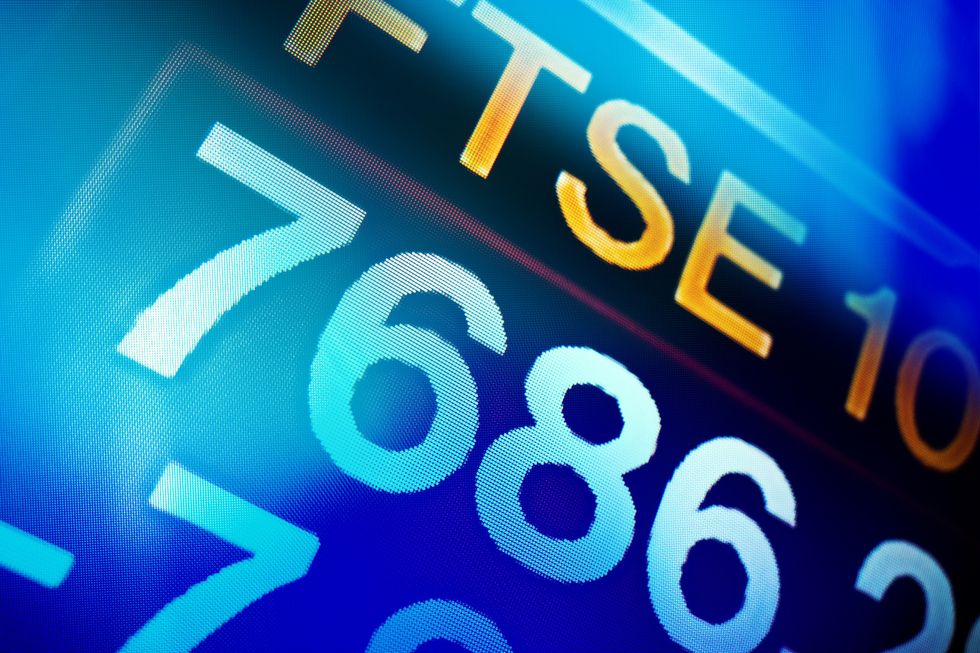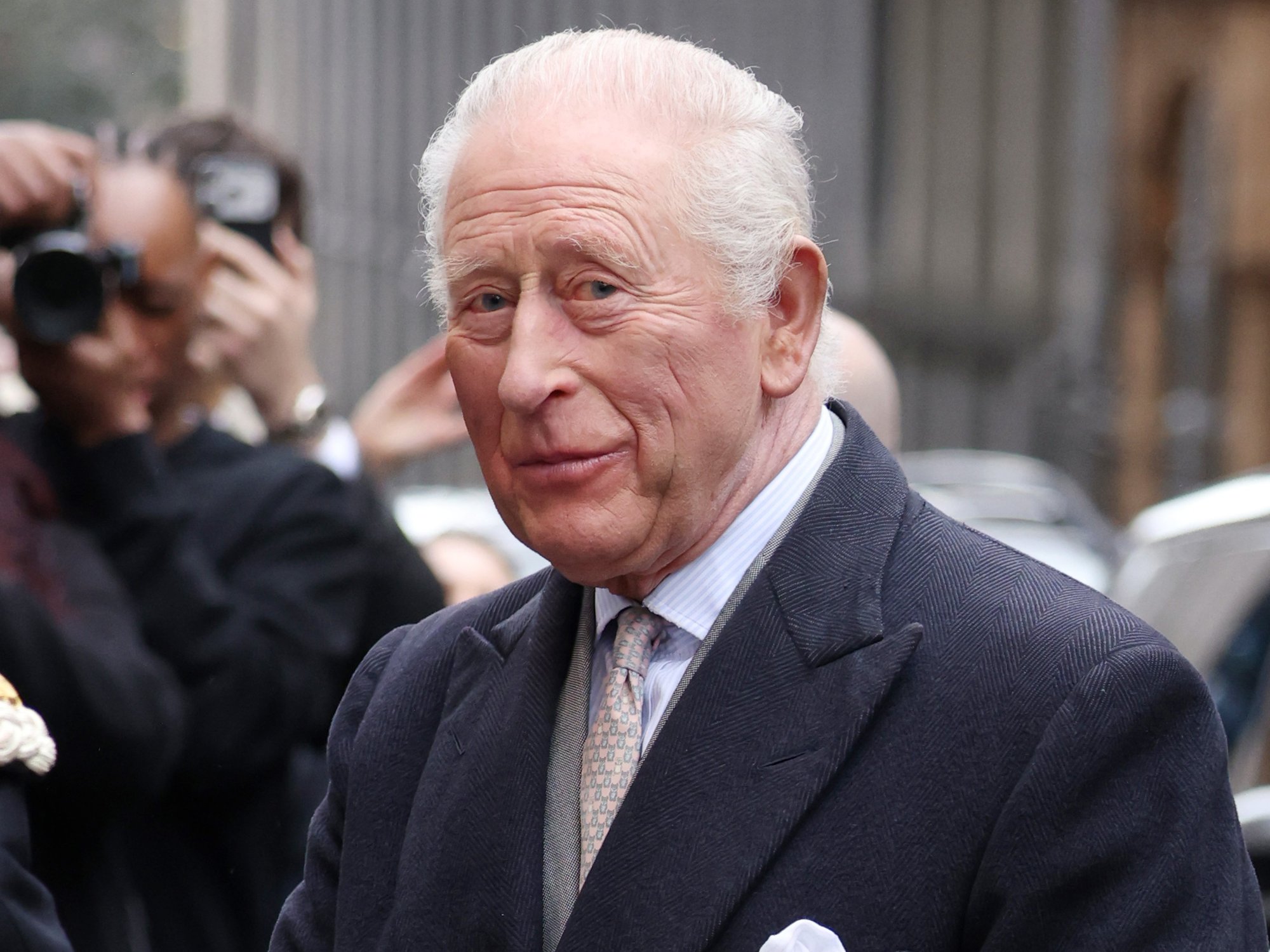Ftse 100 DROPS as global market sell-off deepens amid concerns over AI spending

Keir Starmer: 'I'm investing in the future of Britain' |
GBNEWS

Investor sentiment has been shaken as the tech and AI sector comes under increased scrutiny
Don't Miss
Most Read
UK shares slid on Tuesday as a global market sell-off accelerated, fuelled by mounting concerns over relentless AI-related spending.
The FTSE 100 dropped by around 100 points, falling about one per cent shortly after opening.
The downturn spread across Europe, with Germany’s Dax slipping roughly one per cent and France’s Cac 40 falling by around 1.5 per cent in early trading.
Financial markets worldwide are experiencing their fourth consecutive trading day of declines, with technology shares bearing the brunt of investor anxiety.
Wall Street's major indices closed sharply lower on Monday, with the Dow Jones Industrial Average plummeting over 550 points or 1.2 per cent. The S&P 500 and Nasdaq Composite each shed approximately 0.9 per cent.
US stock futures indicated further weakness ahead, with Dow futures down 185 points or 0.4 per cent in early Tuesday trading.
The cryptocurrency sector has experienced a dramatic collapse, with Bitcoin falling to $89,286 on Tuesday morning, marking its lowest value since April.
The world's largest digital currency has erased all gains accumulated in 2025 and declined nearly a third from its record peak of $126,272 in early October.
The broader cryptocurrency market has shed more than $1.2 trillion over the past six weeks, according to CoinGecko data. The combined market capitalisation of over 18,000 tracked digital coins has plummeted 25 per cent from its 7 October peak of $4.379 trillion to $3.15 trillion.
Tony Sycamore, analyst at IG, described Bitcoin as "the canary in the risk coalmine", noting that its 29 per cent pullback from October's record high now matches the 31.5 per cent decline witnessed from January's $109,356 peak to the $74,434 Liberation Day low.
 FTSE 100 DROPS as global market sell-off deepens amid concerns over AI spending |
FTSE 100 DROPS as global market sell-off deepens amid concerns over AI spending | GETTY/GOOGLE
Victoria Scholar, head of investment at Interactive Investor, sees bitcoin's decline as illustrative of the wider falls, "fuelled by concerns about overvaluations in the tech sector and broader risk-off sentiment that is causing a ripple effect across global markets.
"This year was meant to be the year of the bitcoin bulls supported by a highly crypto friendly administration in the White House and Trump’s ‘less is more’ approach towards regulation.
"However, fears of an AI bubble and concerns about the market’s heavy dependence on a handful of tech giants have caused investors to dial back their exposure to speculative assets such as bitcoin.
"There’s a general sense of nervousness that has captured the market mood lately and bitcoin appears to be in the firing line. Plus with hints that the Fed might not cut rates next month, riskier non-yielding assets like bitcoin look less attractive in a higher interest rate environment."
Chipmaker Nvidia's third-quarter results, due after Wednesday's market close, have become a focal point for investors questioning the sustainability of this year's artificial intelligence-driven rally.
 Rightmove and airline group IAG were the worst performers among blue-chip stocks, each sliding 12 per cent | GETTY
Rightmove and airline group IAG were the worst performers among blue-chip stocks, each sliding 12 per cent | GETTYThe company's shares fell two per cent on Monday and dropped a further 0.9 per cent in premarket trading on Tuesday.
Market sentiment towards AI investments has undergone a dramatic shift, according to Garrett Melson, portfolio strategist at Natixis Investment Managers Solutions.
"The market's reaction function with respect to AI has taken a sharp left turn from rewarding ever-growing capex spend to rapidly growing skepticism of further investment and future returns," he said.
The technology-heavy Nasdaq appears set to break its seven-month winning streak, whilst the S&P 500 has declined 2.5 per cent in November following six consecutive months of gains.
Amazon has secured $15 billion through its first US dollar bond offering in three years, joining a wave of major technology companies turning to debt markets to finance artificial intelligence infrastructure. The e-commerce giant's six-part bond sale follows recent debt offerings from Meta and Alphabet.
Michael Brown, senior research strategist at Pepperstone, highlighted growing unease about the funding methods behind AI expansion. "Amazon kicking-off a six-part bond sale didn't help matters much yesterday, following hot on the heels of similar sales from Meta and Alphabet in recent weeks, and further fuelling concern that AI expansion is now being fuelled by debt, and not by free cash flow," he explained.

Amazon has secured $15 billion through its first US dollar bond offering in three years, joining a wave of major technology companies turning to debt markets to finance artificial intelligence infrastructure
| AMAZON PRESS OFFICE | GBNThese developments have intensified questions about whether technology firms can generate sufficient returns from their massive capital expenditure commitments.
Market expectations for Federal Reserve interest rate reductions have dramatically shifted, with traders now assigning just a 46 per cent probability to a cut, down from more than 90 per cent a month ago, according to the CME FedWatch tool. The change reflects growing uncertainty about monetary policy direction following hawkish commentary from policymakers.
Technical indicators are flashing warning signals after Monday's selloff. The S&P 500 closed below its 50-day moving average for the first time since May, breaking a 138-consecutive-trading-day streak above this key level.
According to Dow Jones Market Data, this represents the index's longest such run since a 149-day period that concluded on 26 February 2007.
The Nasdaq Composite also breached its 50-day moving average, which Marketwatch described as a "worrysome" development for technical traders.
More From GB News










